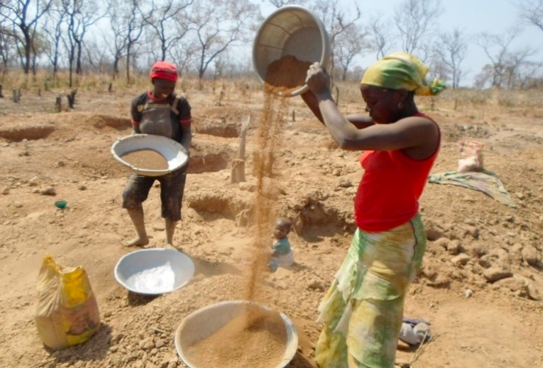The mercury hotspot and mercury waste study in the artisanal gold mining location in the Benue National Park in Cameroon, conducted by the NGO COPRESSA, has identified that primary mercury mining in the form of cinnabar and mercuric chloride takes place at the mining camps in the study area. However, elemental mercury is not often used for amalgamation at the mining camps, but trading in elemental mercury is conducted by gold traders in the larger towns nearby. Exposure to mercury during primary mercury and gold mining may be endangering miners who already suffer diseases and fatalities from poor working conditions. A survey by COPRESSA also provided important details of the demographic breakdown of miners and trends driving artisanal small-scale gold mining (ASGM) in the study area, including gender dynamics.
This project was useful in raising awareness of the Minamata Convention at the remote local level in Sakjé and Mboukma, and it assisted in educating miners on safety issues and the importance of the formalization of the sector. Many authorities and artisanal gold mining workers’ leaders participated in this project. Awareness-raising campaigns on mercury pollution and training on the use of personal protective equipment was carried out directly with miners. Educational materials were also produced and distributed to the artisanal gold mining workers. The workers were educated and oriented about the mercury toxicity and the importance of avoiding its use and minimizing exposure when mining. A major outcome of the project was the formation of an association of artisanal gold mining workers from the two study areas. Members of the new association accepted and signed the protocol of non-utilization of mercury amalgamation in the artisanal gold mining for the 2 sites.

